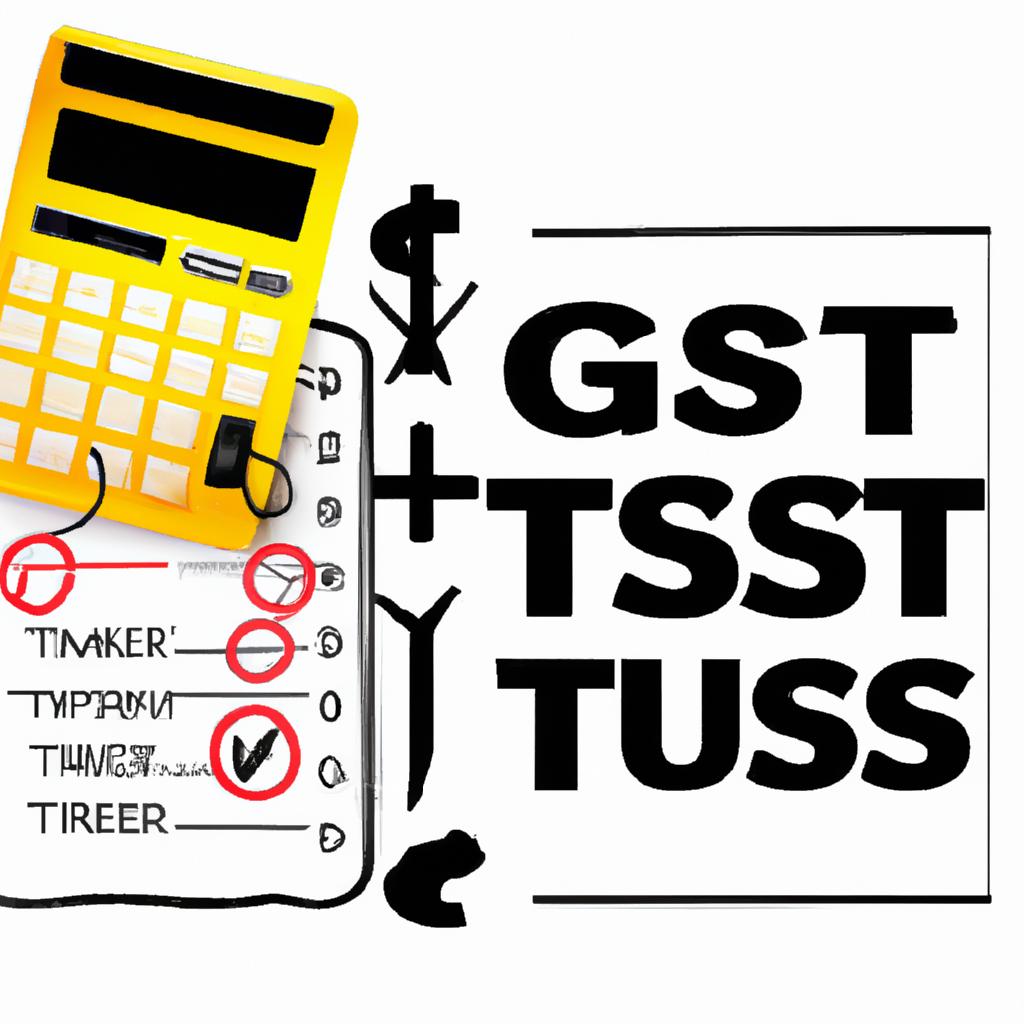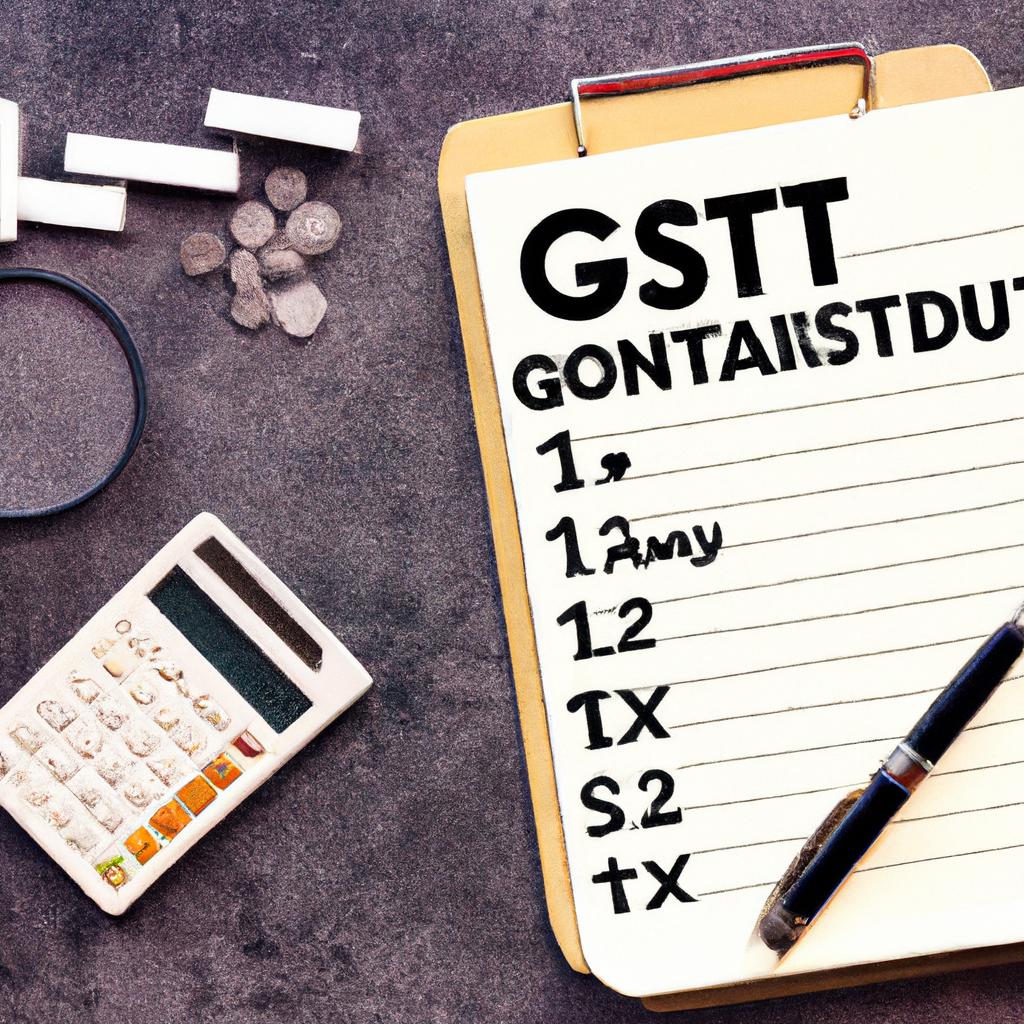Navigating the intricate world of taxes can be a daunting task for both individuals and businesses alike. Among the myriad of tax regulations that exist, the Goods and Services Tax (GST) is a crucial component that must be understood and adhered to. In this article, we will delve into the question of when exactly GST tax is paid, shedding light on this essential aspect of financial compliance. As experienced lawyers at Morgan Legal Group in New York City, we aim to provide clarity and guidance on navigating the complexities of GST tax obligations.
Understanding the Timing of GST Tax Payment
is crucial for individuals and businesses alike. The GST tax, or Goods and Services Tax, is a consumption tax that is levied on the supply of goods and services in New York City. It is important to note that GST tax must be paid by businesses that have a turnover exceeding a certain threshold, as determined by the government.
When it comes to the timing of GST tax payment, businesses must ensure that they file their GST returns on time and make the necessary payments by the due date. Failure to do so can result in penalties and interest charges. Additionally, individuals who are required to pay GST tax must also adhere to the deadlines set by the government to avoid any legal repercussions. By staying informed and compliant with GST tax regulations, individuals and businesses can avoid unnecessary complications and ensure that they are meeting their tax obligations in a timely manner.

Key Factors Influencing GST Tax Payment
In the realm of GST tax payment, there are several key factors that influence when this tax is due. Understanding these factors is crucial for individuals and businesses to ensure compliance with the law. The timing of GST tax payment can vary depending on the specific circumstances surrounding the transaction or taxable event.
- Transaction Type: Different types of transactions can trigger GST tax liability, such as sales of goods or services, imports, exports, and interstate supplies.
- Registration Status: Whether an entity is registered under the GST scheme can impact when tax payments are due, as registered entities must comply with regular filing and payment deadlines.
| Factor | Influence |
|---|---|
| Compliance | Determines if GST tax has been paid in a timely manner. |
| Payment Mode | Online payment options available for convenience. |

Recommended Strategies for Optimal GST Tax Payment
One key aspect to consider when discussing optimal GST tax payment strategies is the timing of when the tax is actually paid. It is important to note that GST tax is typically paid at the time of making a taxable distribution, whether it be during an individual’s lifetime or upon their death. This means that the GST tax is triggered when assets are passed down to beneficiaries in a way that creates a generation-skipping transfer for tax purposes.
When determining the optimal timing for GST tax payments, it is crucial to consider the potential implications of making distributions during an individual’s lifetime versus upon their death. Making taxable distributions during one’s lifetime can help to reduce the overall tax liability on the transferred assets, as the tax rate may be lower at that time. On the other hand, deferring the distribution until after death may provide certain benefits, such as allowing the assets to continue growing tax-deferred until they are ultimately distributed to the beneficiaries.

Navigating the Complexities of GST Tax Payment
When it comes to , understanding the key timelines for when GST tax is paid is essential for any business owner. GST tax payment is typically due on a quarterly basis, with specific due dates set by the IRS. Failure to pay GST tax on time can result in hefty penalties and interest, making it crucial to stay on top of these deadlines.
One important factor to consider is that GST tax is typically paid based on the amount of revenue generated by your business during a specific period. This means that as your business grows and generates more revenue, the amount of GST tax you owe may also increase. Keeping accurate records of your business’s revenue and expenses is essential for calculating your GST tax liability. Additionally, working with a knowledgeable tax professional can help ensure that you are meeting all GST tax payment requirements and maximizing tax savings opportunities.
Q&A
Q: When is GST tax paid?
A: GST tax is generally paid at the point of sale for goods and services.
Q: Is GST tax paid by consumers or businesses?
A: GST tax is typically paid by consumers when they purchase goods or services. However, businesses are also responsible for collecting and remitting GST tax to the government.
Q: Are there any specific circumstances in which GST tax is not paid?
A: Some goods and services may be exempt from GST tax, such as basic groceries, health and dental services, and financial services.
Q: How is GST tax calculated?
A: GST tax is calculated as a percentage of the selling price of goods or services. In Canada, the current GST rate is 5%.
Q: Are there any penalties for not paying GST tax?
A: Businesses that do not properly collect and remit GST tax may be subject to penalties and interest charges imposed by the government. It is important to ensure compliance with GST tax regulations to avoid legal consequences.
Q: Can GST tax be refunded or recovered?
A: In some cases, businesses may be able to claim input tax credits to recover GST tax paid on expenses related to their business activities. Additionally, certain individuals may be eligible for GST tax refunds in certain situations.
The Conclusion
In conclusion, understanding when GST tax is paid is essential for both businesses and consumers to navigate the complexities of the tax system. By knowing the rules and regulations surrounding GST payments, individuals can ensure they are compliant with the law and avoid any unnecessary penalties. Whether you are a business owner or a shopper, being informed about GST tax payments can help you make better financial decisions and contribute to the smooth functioning of the economy. So next time you make a purchase or file your taxes, remember to consider when GST tax is due, and stay ahead of the game.

